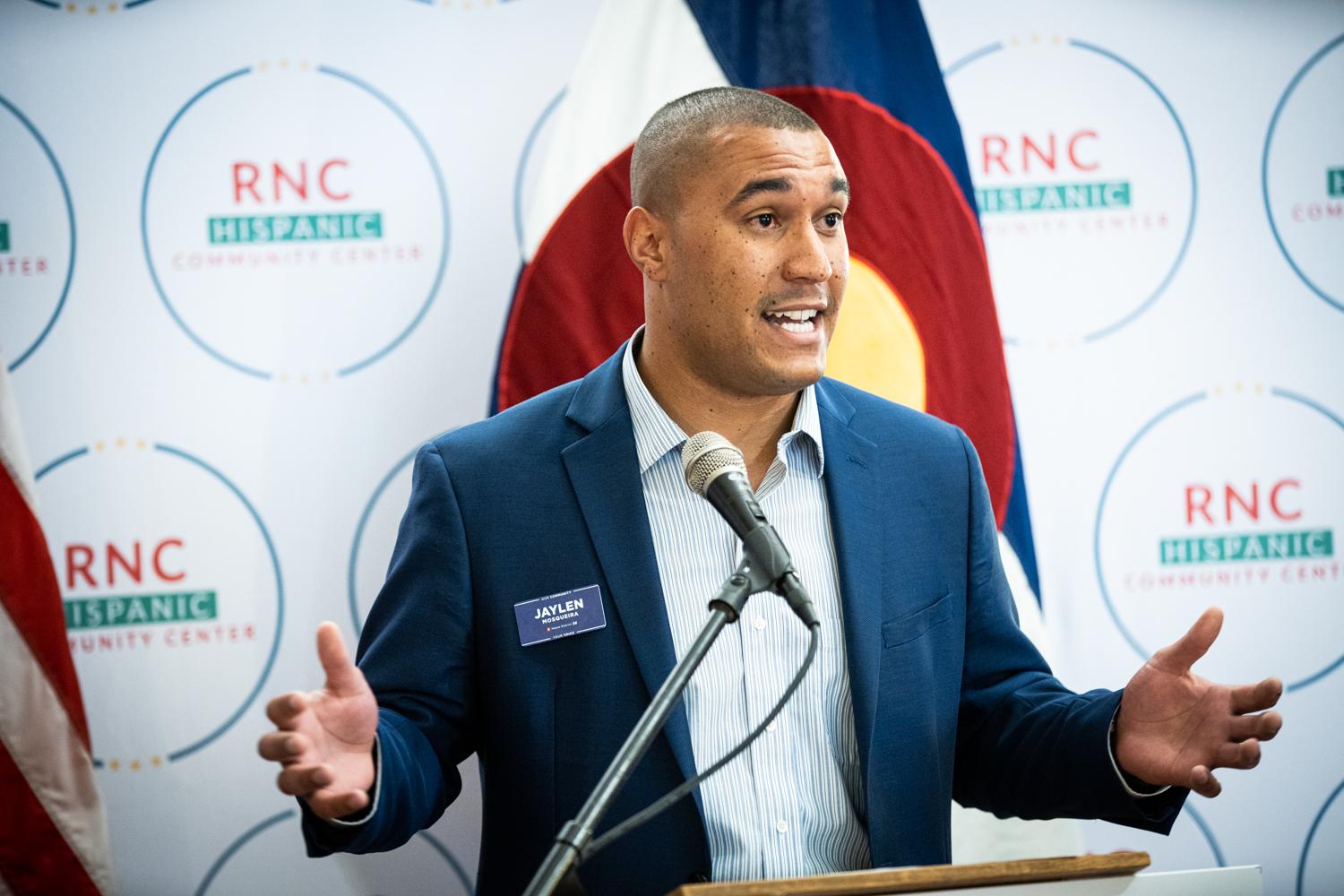
Dan Montoya never thought he’d be running for the state legislature. He served 20 years in the Marines and, up until last January, he says he’d spent his entire adult life as an unaffiliated voter, avoiding politics.
“For me, politics was a non-issue,” he said recently while attending the opening of a GOP Hispanic outreach center in Thornton. “That was not anything we talked about. As a matter of fact, you steered clear.”
But living through the pandemic changed things for Montoya. He describes himself as a concerned parent, one who believes schools need to be more transparent about their policies, and that parents should have a stronger voice in their children’s education.
“As just a citizen, my voice was not being heard, right? Talking to neighbors, talking to family and friends, you felt like things that you were passionate about were maybe falling on deaf ears,” he said.
So he entered the race for House District 28 in Jefferson County, as a Republican.
In recent years, Colorado’s legislature has become increasingly diverse; the most recent session included numerous Latino and Black members, as well as Colorado’s first transgender lawmaker, first lawmaker to use a wheelchair and first Muslim lawmaker. Nearly all of them are Democrats. But this year a diverse slate of Republican candidates hope to change that.
The state party under chair Kristi Burton Brown has made a concerted effort to identify and encourage new types of candidates, like Montoya, to run for the statehouse.
Burton Brown, the first woman to head the Colorado GOP, said the diversity of this year’s candidates is a point of pride, one that “kind of pushes back on the narrative that all Republicans run is old white men.”
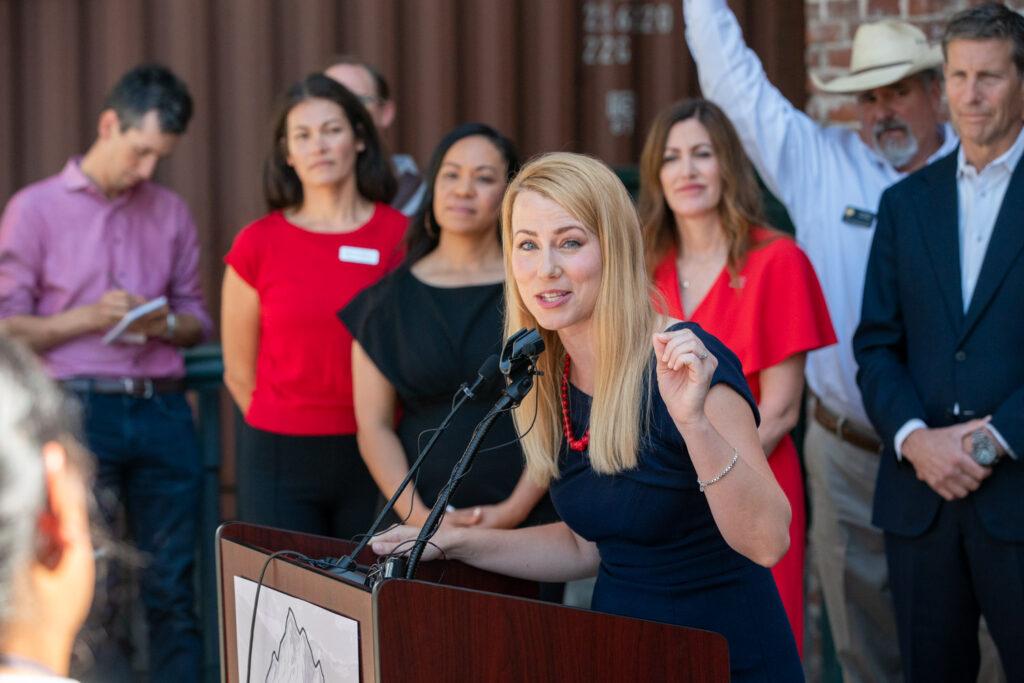
In addition to fielding candidates from different backgrounds, many are also on the younger side. Burton Brown, who is 34, said she believes that will appeal to voters looking for new ideas and new approaches.
Republican State representative Colin Larson, who is white and also in his early thirties, helped spearhead the effort to recruit candidates for this year’s races. He said he spent a lot of time talking to people in different communities to find out who the real local movers and shakers are. The goal, as he put it, was to avoid automatically picking the person who always shows up to the Republican men’s breakfast.
“We really just put an emphasis on reaching Republicans that weren't necessarily the party insiders, but were really more in tune with what was going on in the community,” said Larson.
In addition to recruiting more diverse candidates for statehouse races, Republicans have the only statewide candidate of color this year on the ballot — Danny Moore, who is Black. He was gubernatorial candidate Heidi Ganahl’s pick for running mate.
Who’s running
At 26 years old, Jaylen Mosqueira could be the youngest member of the state legislature if he wins his House District 38 race in Denver’s southern suburbs. It’s one of Colorado’s most competitive House races this year.
Mosqueira has always been a Republican and worked as a legislative aide at the capitol. He said when he showed interest in running, the infrastructure and support were there for him to make a bid for the legislature.
“I don't think it's necessarily that we are all of a sudden finding new minority voices here in Colorado to run,” he said. “I think they've been here and the Republican Party has made sure that we are getting those candidates and telling them it is time to step up and represent our communities and our values, our morals, the way that we know we can.”
How many of this year’s diverse GOP candidates make it to the statehouse remains to be seen. Some are running in safely blue seats; Johnnie Johnson, who is Black and blind, is in House District 5, a downtown Denver seat where Democrats hold a 64-point advantage.
Other races wouldn’t change the overall makeup at the capitol. Mosqueira is challenging incumbent Democratic Rep. David Ortiz, who is also Latino and has made accessibility a priority as the first lawmaker to use a wheelchair.
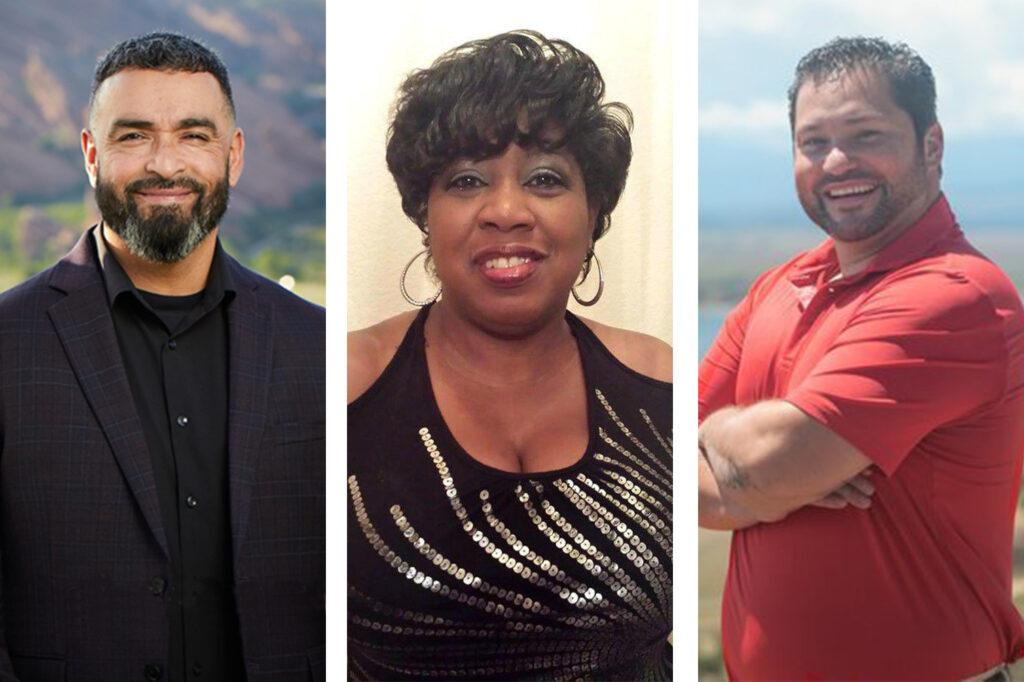
In Colorado Springs, Republican Rachel Stovall and Democrat Regina English — who are both Black — are competing for an open seat that leans Democratic.
“I think it’s historic,” said Stovall of her race. “We have the possibility of minorities coming into these things from as many political perspectives as we have, that it’s not required to think the same way.”
Colorado GOP Vice Chair Priscilla Rahn, who is Black and Korean American, notes that Republicans have some catching up to do when it comes to making their case to nonwhite voters.
“Democrats have done a great job in recruiting and messaging,” she said. “We've acknowledged that as a Republican Party.”
Rahn says historically Republicans have concentrated on issues, not demographics.
“It hasn't been a focus. But because of that, there are communities who feel like we don't care.”
However, the party nationally is taking steps to try to counter that image. Rahn points to the network of community centers the Republican National Committee is opening to reach voters of color as one of the many ways GOP candidates can hear the issues specific to people from different backgrounds.
A new strategy at a difficult moment
Republicans’ new outreach efforts come at a time when the party is more marginalized in Colorado than it has been in decades.
Democrats have controlled both chambers of Colorado’s legislature for the past four years. They also hold all of the major statewide offices and both U.S. Senate seats.
To try to reverse that blue tide, Republicans this year are trying to focus much of their election messaging on the cost of living, crime and education — issues voters have identified as major concerns — while generally avoiding more polarizing topics like abortion and election conspiracy theories.
“It's good to see that they're recognizing what we've known as Democrats for quite a long time, that representation absolutely does matter,” said Lisa Calderon, the head of Emerge, a Democratic training program for female candidates that has had a lot of success and includes alumni at the statehouse.
But Calderon says both political parties need to do a better job of treating people of color as a serious voting bloc; she’d like to see them interacting and engaging with these communities continuously.
“Being an Afro Latina myself, we’re much more complex than I think either party gives us credit for,” she said.
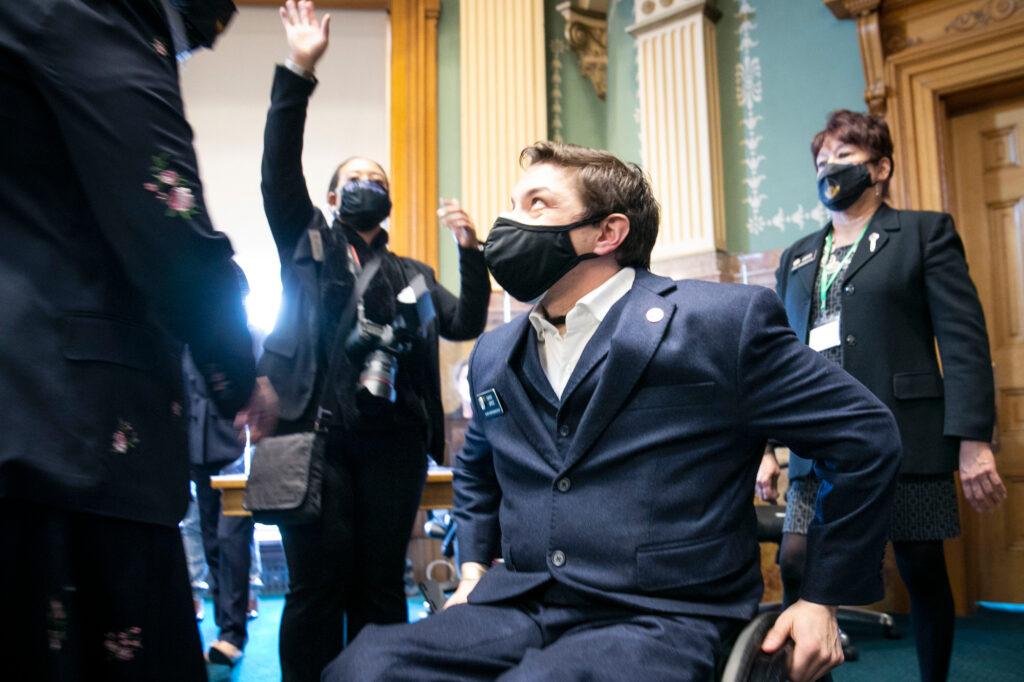
Democrat Junie Joseph, a first time House candidate in Boulder County, views the Colorado GOP’s focus on broadening its pool of candidates as an act of necessity for the party to stay relevant. Joseph was born in Haiti and moved to the U.S when she was 14. She currently serves on the Boulder city council.
“We have one of the most diverse countries, when you’re thinking of developed nations, in the world. I highly doubt any institution will survive without diversifying itself, especially in the United States.” She added that this is the country’s greatest strength and beauty.
“I can understand why the Republican party wants to tap into that strength. But the thing is, it's about love of people. And I don't see that coming from the party yet, the love of people, the love of neighbor, bringing people in, they're not there yet.”
‘People are tired of being polarized’
For some of this year’s GOP candidates, though, the party offers exactly the respect they think Democrats have failed to deliver.
Just two years ago, Stephen Varela was helping to organize Democratic voter outreach to Pueblo’s Latino community ahead of the 2020 presidential election.
But he’s since soured on the Democratic Party, feeling like it has moved too far to the left and hasn’t done anything to really protect union jobs. And he said it felt like he was just viewed as “the Hispanic guy in Pueblo” who only got a call when the party wanted something. Varela has changed party affiliations numerous times in the past decade, the Pueblo Chieftain has reported.
“People are tired of being polarized or tagged into one area,” said Varela, “being told that you're Hispanic or you're African American or you're Asian, so you have to be a Democrat. I don't believe that.”
This year, Varela is a newly minted Republican running for state Senate in a hotly contested seat that could help determine which party controls that chamber.
“For the first time I'm at the table, not because I was a union president or because I'm checking a box that I'm Hispanic, or because I'm a young Hispanic. It's more because, ‘Hey, you have a lot to offer,’” he said.
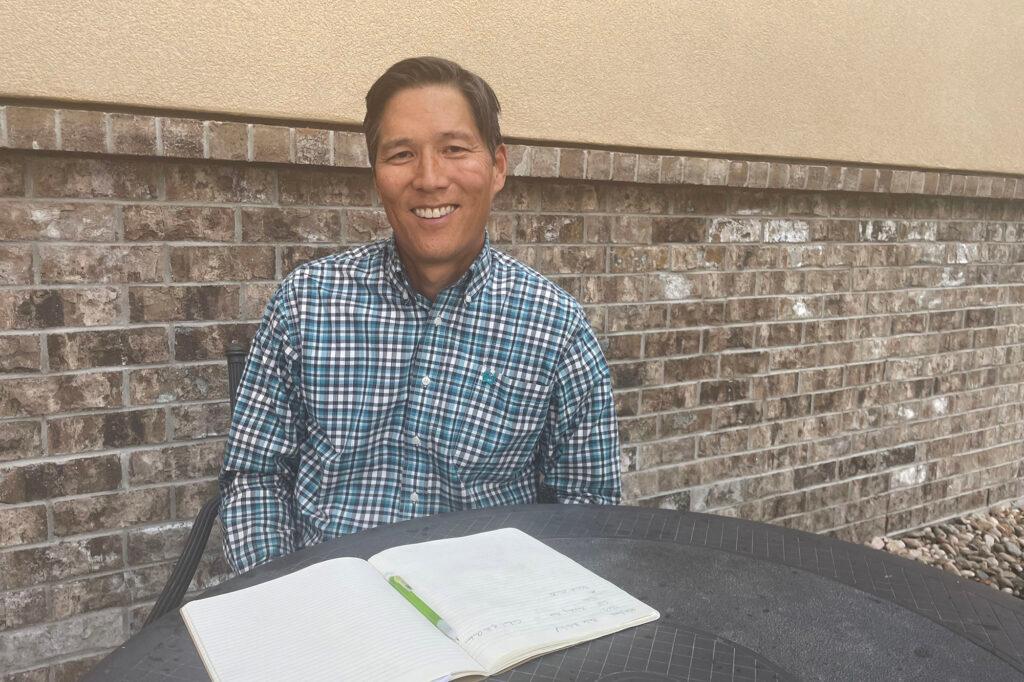
The Republican Party holds a similar appeal for business consultant and attorney Tom Kim, a state Senate candidate in Arapahoe County. If Kim wins, he could be the legislature’s only Asian American member, but he believes the focus of elections should be on issues, not the color of someone’s skin.
“I'm not really a big proponent of identifying people by anything other than who they are as a person,” he said.
Kim’s grandparents immigrated to the U.S from what is now North Korea and built a restaurant business. His father served in World War II and the Korean war. Kim is a long-time Republican; he registered in college and voted twice for President Ronald Reagan.
“We were very much raised with this idea that America's the greatest country in the world and here are the values that make it so great,” said Kim. “It was never about our ancestry as being Korean. And I know there's lots of statistics about who's identifying with the Republican Party, but, I'm just thrilled to see all of the different perspectives that have come around the table.”









